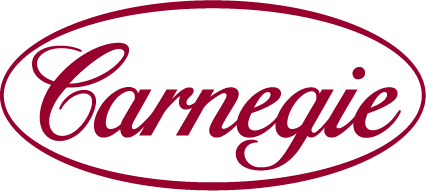From coal-intensive energy company to sustainable leader, treatment of opioid addiction and video conferences securing business through the pandemic. These are three companies driving the sustainable development of today.
The three winners of Carnegie Sustainability Award within the categories Large Cap, Small Cap and Best Newcomer are chosen among 360 listed companies analysed by Carnegie.
“The award is intended to put the spotlight on sustainability metrics that create shareholder value and present good examples to inspire companies and investors. When capital is reallocated, the pressure on corporate transition efforts is increased”, says Lena Österberg, Head of Sustainability, Research & Strategy at Carnegie.
“From our perspective we can see that companies contributing to a more sustainable world also are the winners in the market”, Lena Österberg continues.
The winners of Carnegie Sustainability Award 2021
Large-cap: Ørsted.
Ørsted has gone on a remarkable journey. Once one of the most coal-intensive energy companies in Europe, accounting for a third of Denmark’s national CO2 emissions, Ørsted has in just ten years transformed itself into the world’s most sustainable energy company and a global leader in the transition to green energy. Today, 98% of its operating profit comes from renewables. The transformation has required significant investments and write-downs (DKK33bn) of converted or divested assets. Since 2013 it has invested DKK133bn in its green energy projects. The company has also taken it upon itself to export its success, having formulated a new, purpose-driven company vision – to help create a world that runs entirely on green energy. In 2017, Ørsted made its first international green investment, in Taiwan, and has since expanded to the US, the UK, Germany and the Netherlands.
Small-cap: Camurus
Swedish biopharmaceutical company Camurus develops and commercialises innovative, long-acting medicines for the treatment of severe and chronic conditions. Its product Buvidal is used to treat opioid addiction, an escalating global health problem. WHO data shows that 58m people have used opioids globally in a single year, creating one of heaviest burdens on society of all drugs – for example, opioid overdoses are now the number one cause of death in the US for people under the age of 50. As Buvidal is long-acting, it enables patients and healthcare professionals to focus on recovery instead of spending time and resources on supervised daily medication. Buvidal is injected, limiting the possibility of it being resold on the black market or accidentally being taken by children, both of which are risks with tablets.
Best Newcomer: Pexip.
Video conferencing company Pexip offers self-hosted and as-a-service solutions for enterprise video conferencing with enterprise-grade security. In 2020, the Covid-19 pandemic shined a spotlight on videoconferencing as a business-critical tool across the globe, and Pexip was there to help its clients conduct business-almost-as-usual despite the lockdowns and other restrictions. We expect that video conferencing will remain a critical tool also post-pandemic, contributing to lower emissions by reducing business travel.
About the award
Carnegie established Carnegie Sustainability Award in 2019. The winners in three categories are chosen from among the 360 listed companies analysed by Carnegie and the purpose is to highlight good examples of sustainable companies and inspire others. The award will be presented at Carnegie Sustainability seminar 19- 20 of May. At the seminar also the winners of the award 2020 will be presented as last year’s seminar was cancelled due to the pandemic. Read more about the winners of the 2020 award.>

